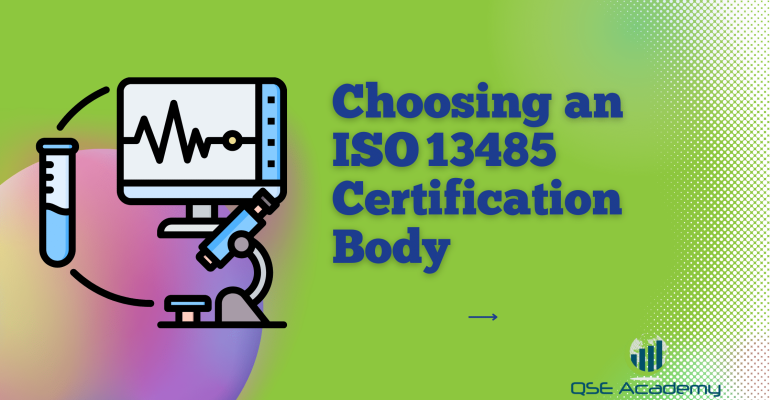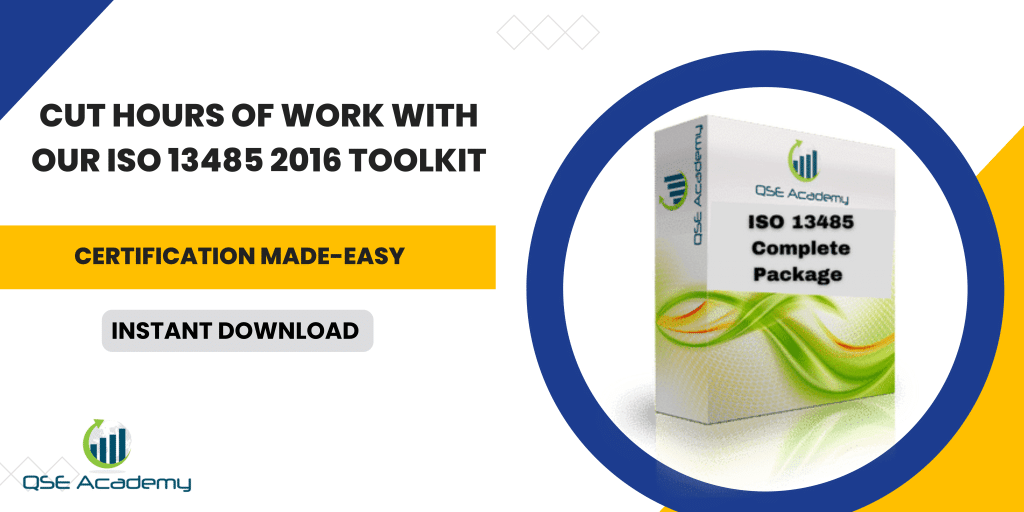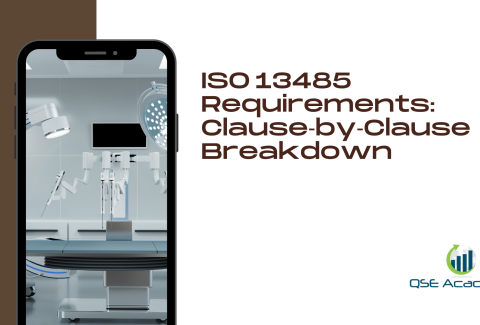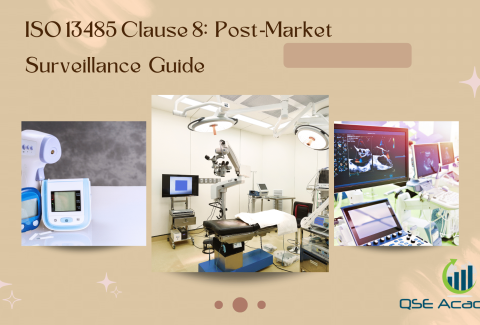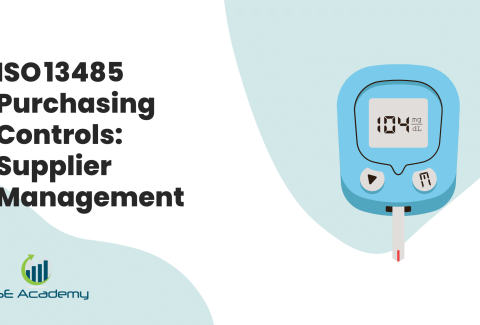Choosing an ISO 13485 Certification Body
Last Updated on October 3, 2025 by Hafsa J.
Introduction: Why Choosing the Right Certification Body Matters
When companies ask me about ISO 13485, one of the first hurdles is always the same: “Which certification body should we go with?” On the surface, it looks simple—pick one, get the audit, get certified. But in reality, the choice can make or break your certification journey.
I’ve seen it firsthand. One client went with the cheapest option they found, only to realize later that their certificate wasn’t recognized in the US market. Another chose a global CB with a great reputation, but ended up frustrated with long wait times and expensive travel costs. The lesson? Not all CBs are created equal, and the wrong choice can cost you far more than just money.
In this article, I’ll walk you through the key factors you need to weigh when choosing a certification body—things like accreditation, cost transparency, auditor expertise, and long-term fit. By the end, you’ll know how to compare your options with confidence and avoid the traps that catch so many companies.
Accreditation Matters: Why Recognition Comes First
The very first filter when choosing a certification body is simple: are they accredited?
Here’s why this matters so much: accreditation means a certification body has been evaluated by an authority (like UKAS in the UK, ANAB in the US, or DAkkS in Germany) and approved to issue ISO 13485 certificates that regulators and customers actually accept. Without it, your certificate may look official—but it might not open the doors you need.
Quick example: I worked with a startup that rushed into certification with a low-cost, non-accredited CB. Six months later, when they tried to register in Europe, their Notified Body told them flat out: “We don’t accept this certificate.” They had to start over with an accredited CB—losing time, money, and credibility.
Pro Tip: Always check your CB in the accreditation body’s official database (these are public). If they’re not listed, walk away.
Common Mistake: Assuming that because a CB says “ISO 13485 certification” on their website, it’s automatically recognized worldwide. It’s not. Some CBs operate without accreditation, and that certificate won’t carry regulatory weight.
Bottom line: Accreditation isn’t a “nice to have”—it’s the foundation of everything else.
Global vs. Local Certification Bodies
Once you’ve confirmed accreditation, the next question is: should you go with a global CB or a local one? Both have pros and cons—and the right choice depends on your business goals.
Global CBs
-
Pros: Strong brand recognition, certificates widely accepted across markets, often easier if you’re selling internationally.
-
Cons: Typically more expensive, longer lead times, and sometimes less flexible with scheduling.
Example: A mid-sized manufacturer I worked with chose a global CB because they were planning to expand into the US and Asia within two years. Their certificate was recognized everywhere, which made market entry smoother.
Local CBs
-
Pros: Usually more cost-effective, faster to schedule, and often more responsive with day-to-day communication.
-
Cons: Recognition may be limited outside their home region.
Pitfall: I’ve seen companies choose a local CB for cost reasons, only to discover later that key overseas customers didn’t accept their certificate. They had to transfer to a global CB, which cost more in the long run.
Pro Tip: If you’re a startup focused only on one regional market (say, EU only), a strong local CB may be the smarter choice. But if international sales are even on the horizon, think global from the start.
Cost Transparency and Audit Days
If accreditation is the foundation, then cost transparency is the reality check. The biggest driver of what you’ll pay isn’t some flat fee—it’s the number of audit man-days the CB assigns to your company. More days = higher costs.
Here’s what to look for in quotes:
-
Audit day calculation: How many days are assigned, and based on what (employee count, scope, sites)?
-
Hidden extras: Travel, admin fees, translation costs.
-
Full cycle pricing: Initial audit + two years of surveillance + recertification.
Pro Tip: Always ask for a 3-year itemized quote. It’s the only way to see the real cost. A cheap-looking first year can turn into an expensive three-year cycle if surveillance fees are high.
Common Mistake: Comparing only the daily rate. I worked with one client who chose a CB with the lowest base day rate, but they didn’t notice travel and admin fees were significantly higher. Over three years, they paid more than if they had gone with the higher daily rate but transparent CB.
Pro Tip #2: Ask your CB to explain how they applied IAF MD 5 (the audit duration rules). A credible CB will walk you through the calculation—if they dodge the question, that’s a red flag.
Bottom line: Price matters, but clarity matters more. You don’t want surprises mid-cycle.
Industry Experience and Auditor Expertise
Not all auditors are created equal. Two certification bodies might both be accredited, but the quality of their auditors can make a huge difference in your experience.
Here’s why it matters:
-
Auditors with medical device backgrounds understand the realities of ISO 13485. They can interpret requirements in a way that makes sense for your processes.
-
Auditors without industry expertise often take a “checkbox” approach—focusing on nitpicking documents instead of adding value.
Example: I supported a client who had an auditor with zero device experience. The audit dragged on with irrelevant questions, and the feedback wasn’t helpful. The next year, they switched to a CB with auditors who had worked in medical devices, and the audit felt collaborative, not adversarial.
Pro Tip: Ask upfront about the auditor’s qualifications. Do they have medical device experience? Have they worked with companies of your size and complexity? A good CB will share auditor bios or at least outline their expertise.
Common Mistake: Assuming all auditors are the same. They’re not—and choosing a CB with experienced, relevant auditors can make your audits far more productive (and less stressful).
Customer Support and Responsiveness
Choosing a certification body isn’t just about the audit days—it’s about the relationship. You’ll be working with this CB for at least three years, so how they support you between audits really matters.
Here’s what to look for:
-
Response times: Do they answer emails within a few days, or do you wait weeks?
-
Clarity of communication: Do they explain findings in plain language, or bury you in jargon?
-
Extra resources: Some CBs provide webinars, guidance documents, or templates that make your journey smoother.
Example: A client of mine stayed with a global CB even though their day rates were higher—because the CB’s support team always picked up the phone, explained requirements clearly, and guided them through tricky regulatory questions. The time saved was worth the extra cost.
Common Pitfall: Ignoring support quality when choosing a CB. One SME I worked with went with the cheapest quote. The audits themselves were fine, but in between, getting answers was a nightmare. They eventually switched CBs mid-cycle, which meant paying extra transfer fees.
Pro Tip: Before signing, send a few test emails with questions. Their response speed and clarity will tell you a lot about what working with them will be like.
Strategic Fit for Your Business Goals
Choosing a certification body isn’t just about today’s audit—it’s about where your business is headed. The CB you select should align with your market access goals and growth plans.
Here’s what to think about:
-
Target markets: If you need access to the US, Canada, or Japan, make sure your CB is recognized under programs like MDSAP (Medical Device Single Audit Program).
-
Future expansion: Planning to grow internationally? A global CB may give you smoother acceptance across borders.
-
Scalability: Will your CB be able to handle you as you expand—adding new sites, employees, or product lines?
Example: A small EU-based startup I worked with chose a local CB because they only planned to sell in Europe. Two years later, when they expanded to the US, they had to transfer to a global CB, which added costs and delayed their market entry.
Pro Tip: Think two to three years ahead. If international sales are even a possibility, pick a CB that’s already recognized in those regions.
Common Mistake: Optimizing for short-term cost savings while ignoring long-term business needs. It’s painful to switch CBs mid-journey, especially if it disrupts product launches.
FAQs on Choosing an ISO 13485 Certification Body
Q1: Can I change certification bodies later if I’m unhappy?
Yes, but timing matters. Most companies switch at the recertification point (every three years), when it’s smoothest. Switching mid-cycle is possible but usually comes with extra costs for transfer audits.
Q2: Do regulators care which certification body I choose?
They care that it’s accredited and recognized. If your CB isn’t accredited by a recognized authority, regulators and customers may reject your certificate outright.
Q3: Should cost or reputation matter more?
Reputation and recognition should always come first. Saving a few thousand upfront isn’t worth it if your certificate isn’t accepted in key markets. Think of cost as secondary to credibility and support.
Conclusion: Making the Right Choice from the Start
Picking an ISO 13485 certification body isn’t just an administrative step—it’s a strategic decision that impacts your budget, your audit experience, and even your ability to enter certain markets.
Here’s the recap:
-
Accreditation is non-negotiable. Without it, your certificate may not be accepted.
-
Global vs. local matters. Match your choice to your market strategy.
-
Cost transparency counts. Look at the full three-year cycle, not just year one.
-
Auditor expertise adds value. Experienced auditors make audits smoother and more useful.
-
Support quality affects your journey. A responsive CB saves time and stress.
-
Think long-term. Choose a CB that fits where your business is going, not just where it is today.
In my experience, the companies that thrive are the ones that look beyond the cheapest quote and focus on recognition, expertise, and partnership.
Next Step: Shortlist two or three accredited certification bodies, request itemized three-year quotes, and ask about auditor qualifications. The extra effort upfront can save you thousands—and a lot of headaches—down the road.
Whether it’s ISO 9001, ISO 22000, or the cosmetics-focused ISO 22716, I’ve spent my career I’m not here to call myself an expert—I prefer “enthusiast” because I truly love what I do. When I’m not writing about standards, you’ll probably find me playing Piano 🎹, connecting with people, or diving into my next big project💫. I’m an engineer specialized in the food and agricultural industry
make ISO standards less intimidating and more approachable for everyone.
turning complex jargon into clear, actionable steps that businesses can actually use.
There’s something incredibly rewarding about helping people navigate food safety and quality management systems
in a way that feels simple, practical, and even enjoyable.
I have a Master’s in QHSE management and over 12 years of experience as a Quality Manager
I’ve helped more than 15 companies implement ISO 9001, ISO 22000, ISO 22716, GMP, and other standards
My clients include food producers, cosmetics manufacturers, laboratories, and service companies
I believe quality systems should be simple, useful, and efficient.

